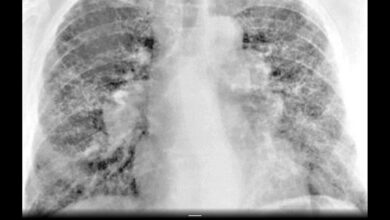PANCREATIC CANCER: It doesn’t get much worse!

The Worst of the Worst
Cancer of the pancreas! It’s one of those diagnoses doctors hate to make, but it’s even worse for patients. It’s a terrible disease.
The pancreas is a glandular organ—it secretes, or releases, chemicals into the intestinal tract and into the blood stream. It has two major functions:
1. Produce and release INSULIN into the bloodstream. Insulin forces glucose (sugar) into
the cells to be used for energy.
2. Produce and release DIGESTIVE CHEMICALS into the intestinal tract for digestion of
food particles.
The pancreas is located deep in the center of the abdomen just in front of the spine in a poorly accessible location. Poorly accessible because blood tests, x-rays, CT scans, ultrasound, and MRI are all very inadequate for getting a “picture” of the status of the pancreas and for finding cancer within. It’s deep location also conceals symptoms, so Cancer of the pancreas is nearly always found in late stages, meaning the tumor has finally gotten large enough, or spread to other organs, so that it causes some disruption that bothers the patient. Cancers of the pancreas involve the exocrine glandular cells—those that produce digestive chemicals.
One common scenario is the patient who comes to the office complaining of dark urine, itching, and yellow skin, ie. jaundice. He hasn’t felt bad, yet, and may have lost a few pounds, or noticed a decreased appetite; but maybe not. Other people, however, have told him his skin and the whites of his eyes are yellow, and he is itching constantly.
This is called PAINLESS JAUNDICE and is caused by a cancer in the head of the pancreas. The Common Bile Duct, which transports bile from the liver to the duodenum (first part of the small intestine), runs right through the head of the pancreas. A malignant tumor located in the head of the pancreas has gotten large enough to choke off the flow of bile causing jaundice. Bile is unable to pass into the duodenum, has nowhere to go, and backs up into the liver. The liver swells and bile is forced into the bloodstream. The term for this situation is OBSTRUCTIVE JAUNDICE, and it has a terrible prognosis.
Cancer of the pancreas is not an inherited disease, but your chances of having it are significantly higher if a parent or sibling has had it. Smoking, obesity, long-standing diabetes, and diets high in red and processed meats increase your risk. If you have a strong family history of pancreatic CA you should consider participating in a research study or screening program voluntarily. Of course, lifestyle changes and avoiding risk factors are very important as well.
I can’t underemphasize the seriousness of pancreatic cancer. It’s the fourth leading cause of cancer death in the U.S. It’s almost always in an advanced stage when it is found. Five-year survival rates for cancer of the pancreas are dismal (9%). For patients diagnosed early enough to have surgery (about 10% of cases) the rate is 34%. For those whose tumor has invaded surrounding tissues the rate is 12%. For the 52% of patients who have spread to other organs at the time of diagnosis, the 5-year survival is only 3%. Three per cent!!
Treatment is always attempted, but results are not encouraging. In my experience no one diagnosed with pancreatic cancer survived the disease. Even those who had radical surgery died. The only person I’ve ever heard of who has survived “pancreatic cancer” is Supreme Court Justice Ruth Bader Ginsburg. She has had it for years and has outlived any patient I knew who had it. She is either very lucky or she has a very non-aggressive form of it. She must be among the 3-34% of survivors I mentioned.
My best advice to you is to practice healthy lifestyle habits, seek the assistance of specialists if there is a strong family history, and pray you don’t wake up one day with yellow skin.
References: Moore A, Donahue T. Pancreatic Cancer JAMA 2019 Oct 8;322(14):1426.
https://www.cancer.net/cancer-types/pancreatic-cancer/statistics




